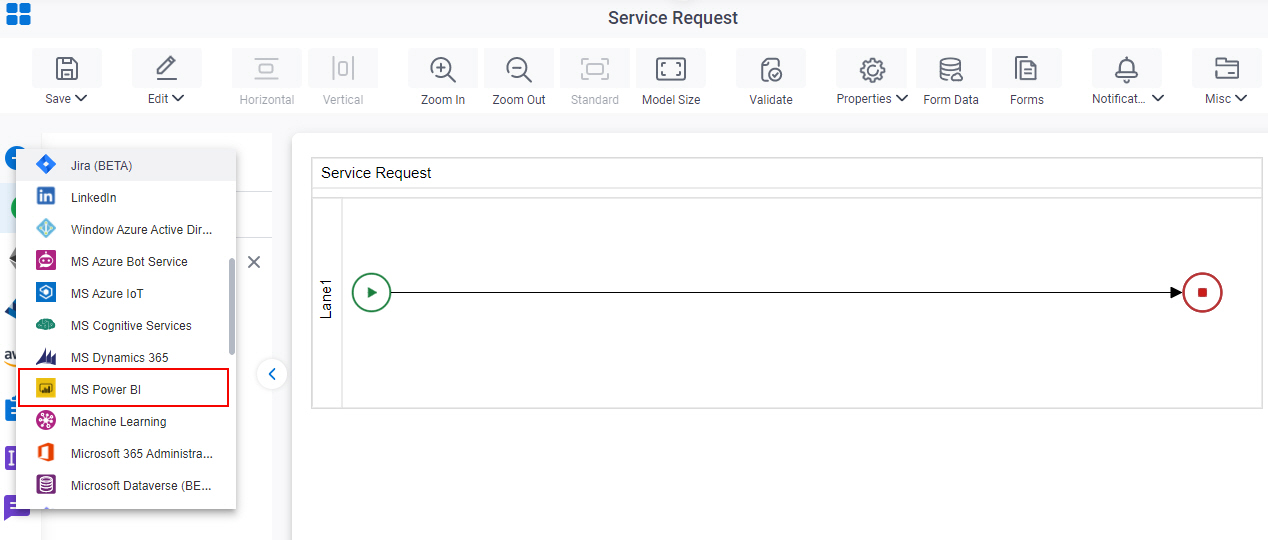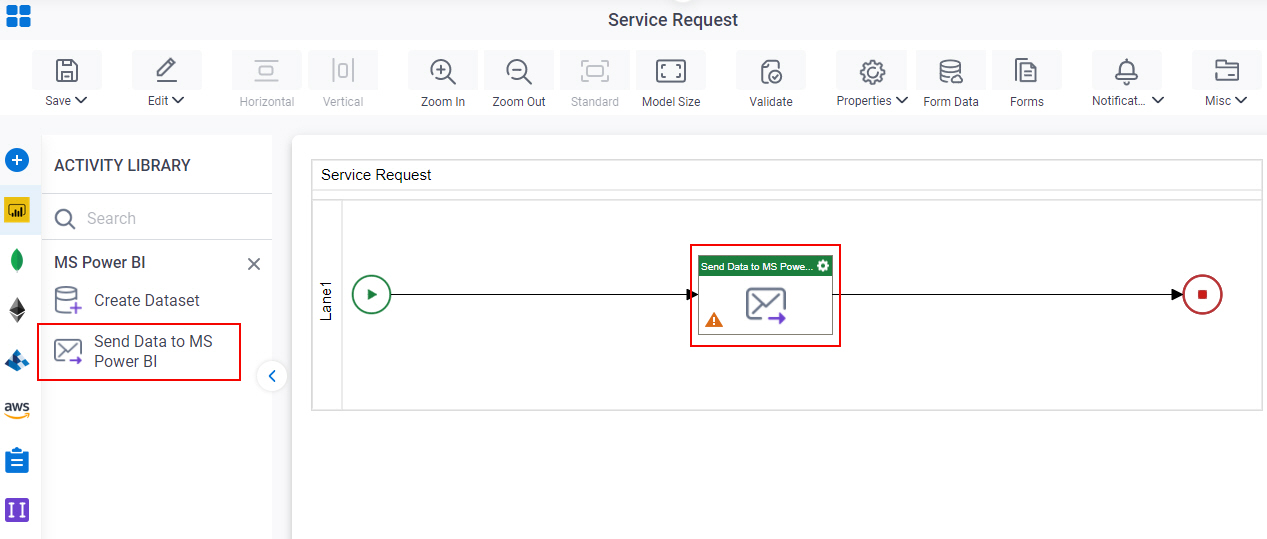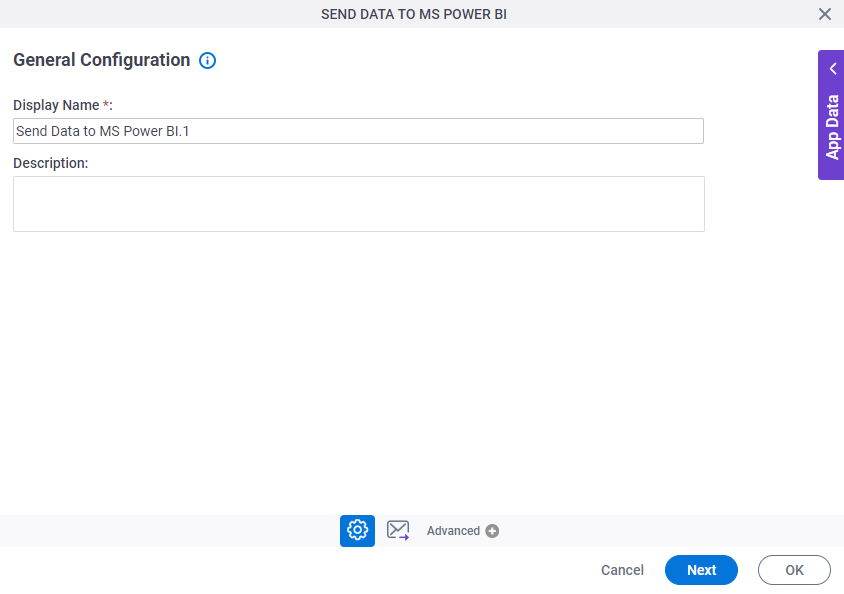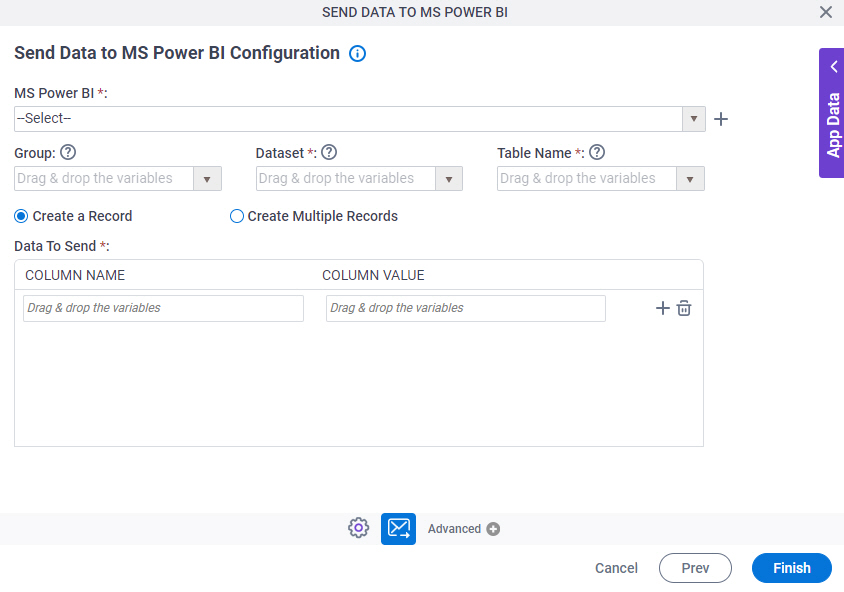Send Data to MS Power BI activity
An activity that sends data from the AgilePoint NX workflow database to Microsoft Power BI.

Configure the MS Send Data to Power BI activity
To configure the Send Data to MS Power BI activity, do the procedure in this topic.
Examples
Good to Know
- To send an email notification, click
Advanced
 >
Email Notifications
>
Email Notifications  .
. For more information, refer to Email Notifications screen (Process Activities).
- In most text fields, you can use process data variables as an alternative to literal data values.
- You can configure whether this activity waits for other activities before it runs.
For more information, refer to How Do I Configure an Activity to Wait for Other Incoming Activities?
- This section shows the configuration settings on the configuration screens for this activity. Other configuration settings apply to system activities. For more information, refer to:
How to Start
- Open Process Builder.
For information about how to open this screen, refer to Process Builder.
- In Process Builder, in the Activity Library,
open the MS Power BI tab.

- On the MS Power BI tab,
drag the Send Data to MS Power BI
activity onto your process.

General Configuration
Specifies the basic settings for the Send Data to MS Power BI activity.

Good to Know
- Documentation for this screen is provided for completeness. The fields are mostly self-explanatory.
Fields
| Field Name | Definition |
|---|---|
|
Display Name |
|
|
Description |
|
Send Data to MS Power BI Configuration
Specifies the data from AgilePoint database to send to Microsoft Power BI.

Fields
| Field Name | Definition |
|---|---|
|
MS Power BI |
|
|
Create |
|
|
Group |
|
|
Dataset |
|
|
Table Name |
|
|
Create Record |
|
|
Repeating Node |
|
|
Column Name |
|
|
Column Value |
|
|
Create |
|
|
Delete |
|



